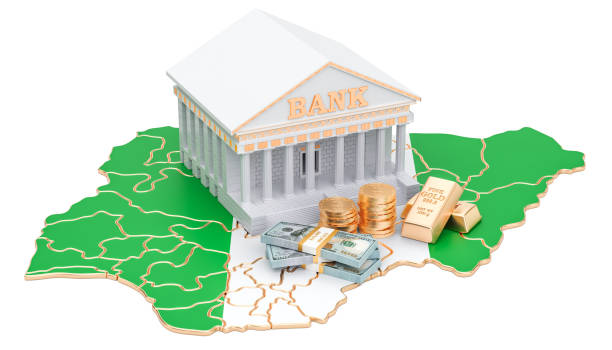Nigeria’s Controversial Crude Oil Supply Policy: What’s at Stake?
Nigeria’s latest push to prioritise domestic crude oil supply over exports is raising alarm bells across the oil industry. The Nigerian Upstream Petroleum Regulatory Commission (NUPRC) and the Nigerian Midstream Petroleum Regulatory Authority (NMDPRA) have agreed to enforce the Domestic Crude Oil Supply Obligations (DCSO) as mandated by the Petroleum Industry Act (PIA) 2021. The policy, which was formalised in December 2023, requires all oil companies operating in Nigeria to prioritise supplying crude oil to local refineries before exporting any surplus.
While this policy might seem like a move to bolster Nigeria’s economy, it has sparked significant controversy. The Independent Petroleum Producers Group (IPPG), representing the country’s indigenous and international oil companies, has voiced strong objections. Their concerns touch on legal, financial, and contractual implications that could have far-reaching consequences for Nigeria’s oil sector and economy.
Join our WhatsApp ChannelLegal Conflicts in Crude Oil Supply Policy
The NUPRC’s directive, effective July 11, 2024, was based on the PIA 2021, which grants the commission the authority to regulate Nigeria’s upstream petroleum sector. Section 109(4) of the PIA specifically outlines the requirements for domestic crude oil supply, stating that it should be conducted on a willing buyer, willing seller basis. The law also emphasises that the price for crude oil should be commercially negotiated, considering the prevailing international market rates.
IPPG, however, argues that the NUPRC’s DCSO guideline conflicts with the PIA’s provisions. The group’s chairman, Abdulrazaq Isa, highlighted this in a letter to NUPRC’s Chief Executive, Gbenga Komolafe, on 16th August 2024. “The current position on this matter may inevitably lead to economic damage and self-sabotage of the Nigerian economy,” Isa warned. He further pointed out that forcing oil producers to supply domestic refineries at potentially unfavorable terms could violate the principle of a commercially negotiated price.
Moreover, the PIA stipulates that payments for crude oil should be made in either U.S. dollars or Naira, as agreed by the parties involved. The IPPG fears that mandating domestic supply could disrupt existing contractual obligations with international buyers, leading to severe financial repercussions.
READ ALSO: Dangote: No Refinery Across The World Depends On Domestic Crude Oil Supply – Kachikwu
Contractual and Financial Implications
Beyond the legal concerns, the new crude oil supply policy could have serious contractual implications for Nigeria’s oil producers. Many of these companies, including the state-owned Nigerian National Petroleum Company Limited (NNPCL), are bound by fixed supply contracts or forward sale agreements with international traders. These contracts are essential for securing financing for upstream investments, which are crucial for maintaining and increasing Nigeria’s oil production.
If oil producers are forced to divert crude oil to domestic refineries, they may default on their obligations to international buyers. Such defaults could trigger cross-defaults on other financial obligations, severely impacting the creditworthiness of Nigerian oil producers. This, in turn, could limit their ability to raise the capital needed to boost production from the current 1.3 million barrels per day to the government’s target of 2.5 million barrels per day.
The IPPG has also warned that the policy could put Nigeria in an adversarial position with international traders who finance a significant portion of the country’s upstream activities. This could lead to a drying up of foreign exchange, further exacerbating Nigeria’s economic challenges.
NUPRC’s Nationalistic Intent vs. Economic Reality
On the surface, the NUPRC’s push to prioritize domestic crude oil supply appears to be a nationalistic move aimed at strengthening Nigeria’s economy. The policy could reduce the country’s reliance on imported petroleum products, lower the cost of crude oil derivatives, and create jobs in the refining sector. However, the economic benefits of the policy are not as clear-cut as they seem.
Critics argue that the policy could do more harm than good by destabilising the oil industry and undermining Nigeria’s economic stability. “This is like robbing Peter to pay Paul,” says an industry insider who wished to remain anonymous. “We’re destabilizing the businesses of oil producers just to promote the business of refineries.”
Alternative Solutions for Crude Oil Supply
Rather than enforcing a policy that could disrupt Nigeria’s oil sector, some experts suggest that NUPRC should explore alternative solutions. One option is to allocate the 445,000 barrels per day (bpd) that are statutorily reserved for local consumption by NNPCL to domestic refineries. This could reduce the volume of imported petroleum products without forcing oil producers to breach existing contracts.
Additionally, NUPRC could encourage domestic refineries to meet the trade requirements of oil producers through long-term crude oil sales and purchase agreements under the willing buyer, willing seller framework. This approach would allow refineries to secure the crude oil they need without disrupting the broader petroleum industry.
A Delicate Balancing Act
While the NUPRC’s intent to prioritise domestic crude oil supply is understandable, the potential consequences of this policy could outweigh its benefits. Nigeria’s oil industry is a complex ecosystem where any disruption can have far-reaching effects. As the country navigates these challenges, it will be crucial for policymakers to strike a delicate balance between nationalistic goals and economic realities. Only then can Nigeria fully realize the benefits of its vast oil resources without jeopardising its economic stability.
Emmanuel Ochayi is a journalist. He is a graduate of the University of Lagos, School of first choice and the nations pride. Emmanuel is keen on exploring writing angles in different areas, including Business, climate change, politics, Education, and others.
- Emmanuel Ochayihttps://www.primebusiness.africa/author/ochayi/
- Emmanuel Ochayihttps://www.primebusiness.africa/author/ochayi/
- Emmanuel Ochayihttps://www.primebusiness.africa/author/ochayi/
- Emmanuel Ochayihttps://www.primebusiness.africa/author/ochayi/


















Follow Us